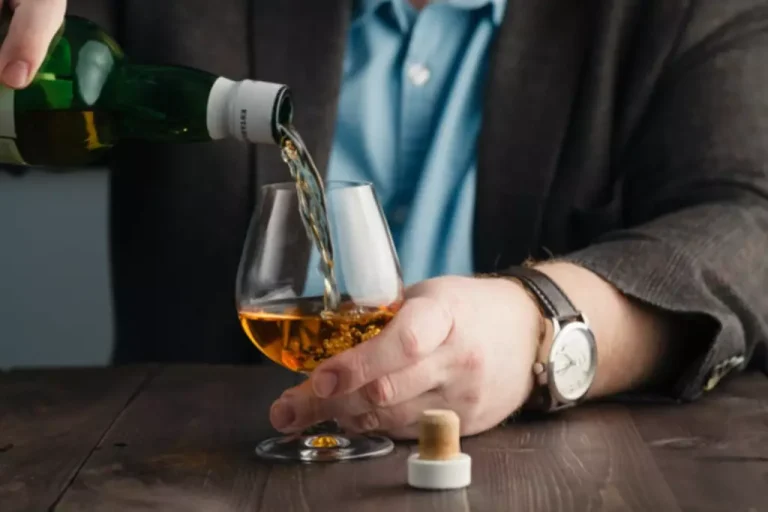
They need to be able to connect emotionally with their own future possibilities in recovery. This buy-in won’t come about by applying guilt over the past or other pressures that keep them stuck in the struggles of the present. Even if an intervention doesn’t work, you and others in your loved one’s life can make changes that may help. Ask other people involved not to feed into the destructive cycle of behavior and take steps to make positive change.
- This eliminates the problem of temptation and allows for around-the-clock care for withdrawal symptoms and any psychological issues that arise.
- Let them know that you have noticed changes in their behavior and that you are genuinely worried about their health and happiness.
- According to the Mayo Clinic, an intervention is sometimes necessary to get a loved one the support and addiction treatment they need by getting them into drug or alcohol rehab.
- The rate of deaths in every age group is within one percentage point of the national average.
- Whatever type of coverage you have, insurance companies (public and private) are required to cover substance abuse treatment for qualified individuals.
- Dependence involves the changes that take place in the individual’s body and brain in order to accommodate the frequent presence of a foreign substance.
Intervention and Support
- This will create a safe and comfortable environment for the person to share their thoughts and concerns.
- Payment of benefits are subject to all terms, conditions, limitations, and exclusions of the member’s contract at time of service.
- Use your knowledge of the person’s preferences and communication style to make them feel comfortable and open to discussing their addiction and the need for professional help.
- Alternatively, you might consider holding an intervention if you feel like a message of concern coming from a professional would be better received.
- This might be the best option when the person suffering from a substance abuse disorder is a danger to themselves or others.
Based on the National Institute on Drug Abuse guidelines, the treatment plan for involuntarily committed patients is tailored and customized for each individual. Since the patients have not voluntarily committed to treatment for recovery, special care is taken to ensure that they are motivated by the process and continue with their treatment. Comprehensive treatment plans are devised, including several medications for drug addiction, rehab therapies, and treatment modalities to address various issues of substance abuse, mental health disorders, or both. For those who are uninsured or facing financial constraints, state-funded treatment centers are an option to consider. These centers, supported by government resources, offer addiction treatment services to individuals who may not have insurance coverage or the financial means to access private treatment options.

How to Get a Loved One into Rehab:A Step-by-Step Guide

New York offers a wide range of addiction treatment programs tailored to individual needs, various payment options, and invaluable resources. By being well-informed about treatment and payment options, individuals and their loved ones can navigate the journey to recovery with confidence and maximize their chances of successful rehabilitation. how to get someone into rehab When a loved one is in trouble with addiction or substance use disorder, their friends and family can play a crucial role in helping them get better. According to the Mayo Clinic, an intervention is sometimes necessary to get a loved one the support and addiction treatment they need by getting them into drug or alcohol rehab.
Benefits of EMDR for Addiction
These programs are designed for individuals with severe addiction issues, co-occurring mental health disorders, or those who have struggled with maintaining sobriety in shorter-term programs. Individualized treatment plans are a crucial aspect of rehab centers as they recognize that each person’s journey through addiction and recovery is unique. Based on an assessment, treatment professionals work collaboratively with the individual to establish personalized treatment goals.

Educate Yourself about Addiction
- It’s best to consult a professional counselor, psychologist, social worker, or interventionist to create an effective plan.
- There are hearings in these cases, and the person that you seek to have committed has the right to attorney representation.
- Sober living homes (also referred to as recovery residences) are group homes that help recovering addicts transition from treatment facilities to living on their own, while maintaining sobriety.
- Research rehab treatment options and gather information about different programs and facilities.
- And even if the loved one does agree to enter rehab, it’s not a given that the treatment program will “take” and be successful the first time.
The rehab’s weakest performance came on “Rehabilitation Services Provided – it was given a score of 5.67 since it only offers nine unique rehabilitation services. It’s been estimated that nearly 500,000 residents of New York State use hard drugs like cocaine and heroin, and another one million have an alcohol use disorder. Support groups such as Alcoholics Anonymous (AA), Narcotics Anonymous (NA), or other recovery-oriented groups can provide ongoing peer support and a sense of community. These groups offer a supportive environment for individuals to share their experiences, gain encouragement, and learn from others in recovery. These are a few reasons other why someone might consider urging a loved one to enter a rehab center.
Choosing Substance Use Over Family
This is when you can discuss your concerns and offer support, reminding them that you love them and are concerned about their wellbeing. It could be helpful to have information on different treatment options readily available. Alternatively, you might consider holding an intervention if you feel like a message of concern coming from a professional would be better received. However, laws are constantly changing, and each state differs in how and when the laws could or would be applied. It’s important to look at your state’s specific guidelines regarding involuntary rehab commitment so that you understand how and when, or if, it would apply to your specific situation.

Involuntary rehab in Texas includes laws through which mentally ill individuals and patients of substance abuse may be committed involuntarily if certain criteria are met. The application can be https://ecosoberhouse.com/ made by family, relative, spouse, friend, or any other party. If the individual qualifies for forced rehab, they may be committed to 60 to 360 days, depending on the nature of the petition.
